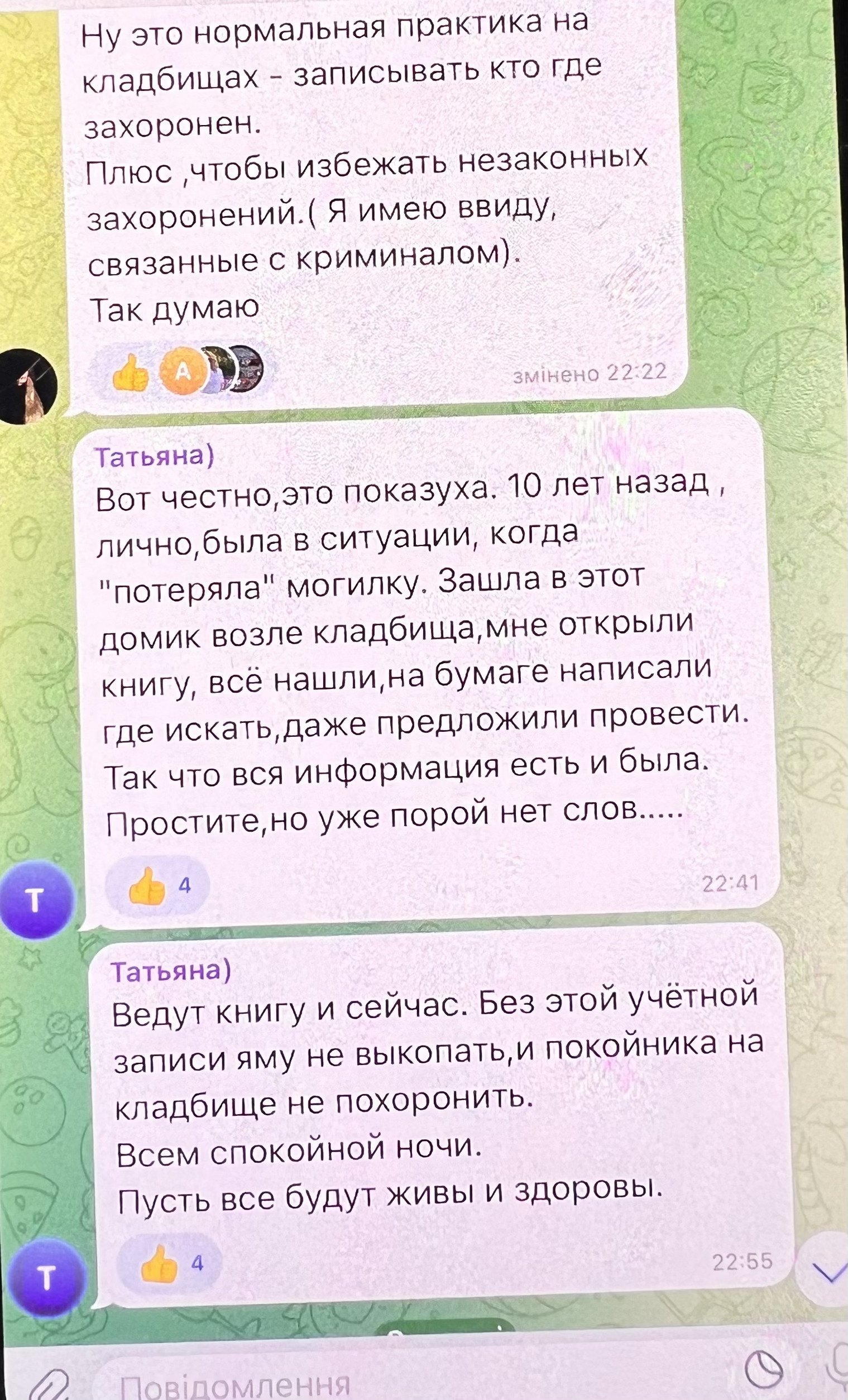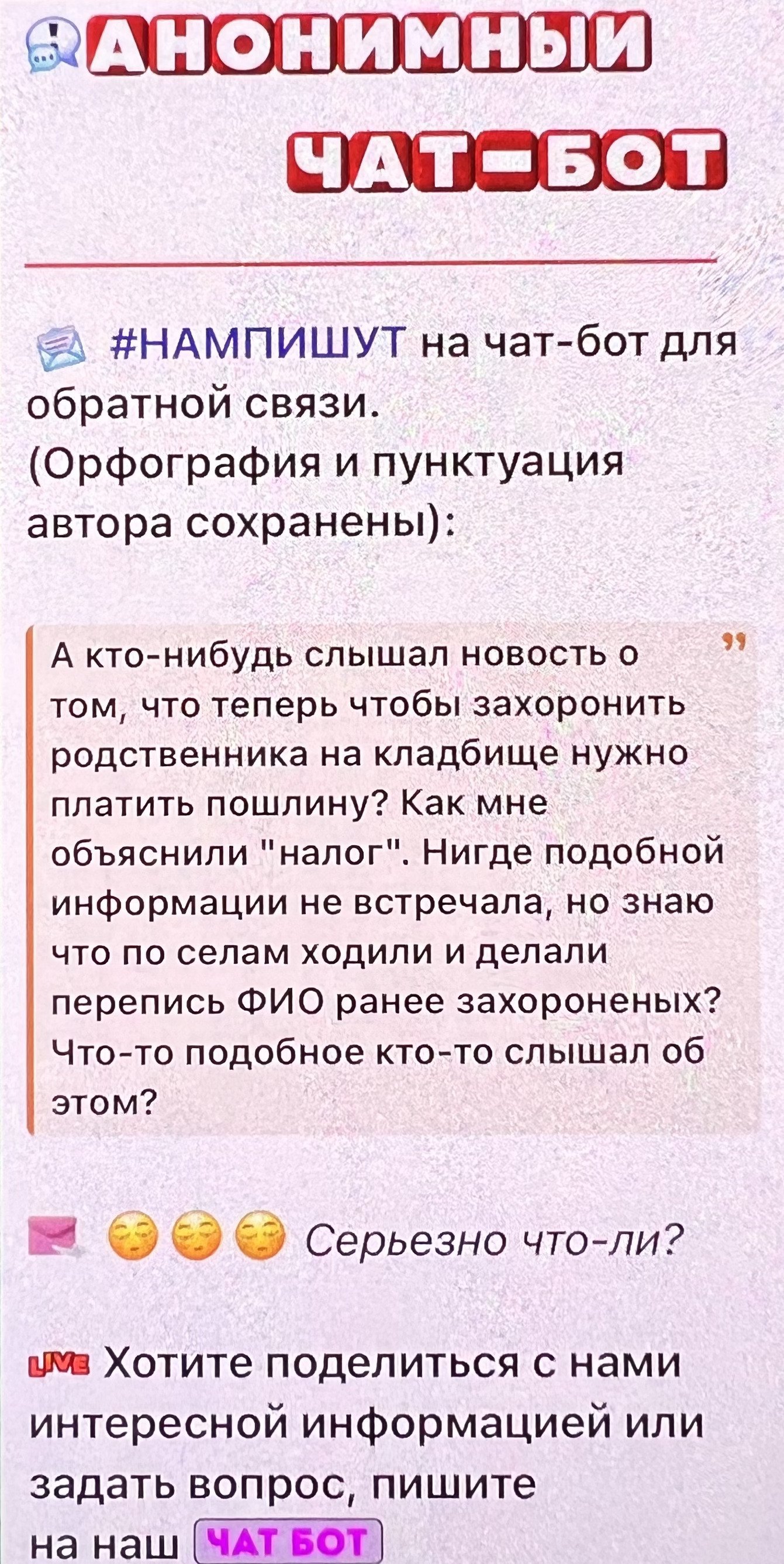In the local Telegram channel, residents write that in the villages, including Pidhorivka, they went to the cemetery and put up some leaflets.
‘They said it was an inventory. I don't know the details,' wrote user Nataliya Pankratova.
Nataliya Cherevata adds that this is also happening at the central city cemetery.
‘Today I was at the city cemetery. They have started to take an inventory, will create an archive book, and have even started to put numbers on the monuments and record them in a journal. If the monument is unknown, they simply put a number on it and add it to the plan of where the person is buried. That's how it was explained to me,’ she writes (the quote is translated from Russian - Ed.).

Rather, no one did this under the ‘new government’. Nor did they remove garbage or cut down dangerous trees that were falling and destroying monuments to the dead.
There was a separate post about this in this group: a woman wrote that the guys offered to cut down a tree near her relative's grave for 8,000 rubles. However, they did not explain on what grounds they were cutting and providing ‘services’ there.
Later, the occupation authorities, having read dozens of dissatisfied comments, reported that they had already cleared the cemetery of rubbish and trees.
Perhaps that's why they decided to introduce a 'state duty' (originally referred to as 'gosposhlina').
An anonymous user wrote about this: "Has anyone heard the news: to bury a loved one, you have to pay 'state fees'? As it was explained to me, it is a ‘tax’. I have not heard this information anywhere, but I know that they have already started going to the villages and taking a census of the previously buried."
A question immediately appeared in the chat about the amount of money involved, but it remains unanswered.









